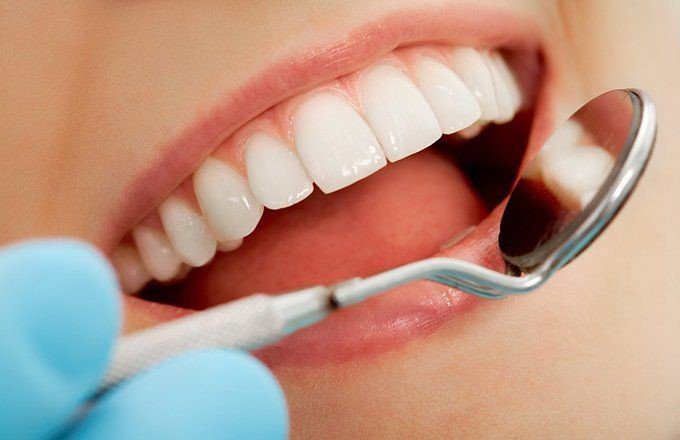What Are The Benefits of Dental Insurance

Dental health is an integral part of overall well-being, and regular dental care is essential to maintaining good oral hygiene. However, dental treatments and procedures can be expensive, and many people may avoid visiting the dentist due to the cost. This is where dental insurance can be a valuable investment.
Dental insurance provides coverage for various dental procedures and treatments, such as routine check-ups, cleanings, fillings, and even more complex procedures like root canals and orthodontic treatments.
In this article, we will explore the benefits of dental insurance, including how it can help you save money on dental care, improve your overall oral health, and provide peace of mind knowing that you are covered in the event of a dental emergency.
What Are The Benefits of Dental Insurance?
Dental insurance offers a variety of benefits for individuals and families who prioritize maintaining good oral health. Here are some of the key benefits of dental insurance:
Reduced Cost of Dental Care: Dental insurance helps reduce the overall cost of dental care, making it more affordable for individuals and families. With dental insurance, you will typically pay less out of pocket for routine check-ups, cleanings, and other dental procedures.
Access to Preventative Care: Dental insurance encourages regular dental check-ups and cleanings, which are crucial for maintaining good oral health. Preventative care can help detect potential dental issues early on, allowing for more straightforward and less costly treatment options.
Coverage for Major Procedures: In addition to covering routine check-ups and cleanings, dental insurance can also provide coverage for more complex procedures such as root canals, crowns, and orthodontic treatment. These procedures can be expensive without insurance coverage, making dental insurance a valuable investment for those who may require them.
Peace of Mind: Dental emergencies can happen unexpectedly, causing a significant financial burden for those who are not prepared. With dental insurance, you can have peace of mind knowing that you are covered in the event of a dental emergency.
Improved Overall Health: Good oral health is essential for overall well-being, and dental insurance can help individuals and families prioritize their oral health by making routine dental care more accessible and affordable.
Overall, dental insurance offers a range of benefits for those who prioritize their oral health. From reduced costs and access to preventative care to coverage for major procedures and peace of mind, dental insurance is a valuable investment for individuals and families looking to maintain good oral health.
The Benefits of Having Dental Insurance
Affordable Dental Care
One of the key benefits of having dental insurance is that it can make dental care more affordable. Without insurance, dental procedures can be very expensive and often lead people to delay or skip necessary treatments. However, with dental insurance, individuals and families can access affordable dental care, making it easier to maintain good oral health.
Most dental insurance plans cover preventive care, such as regular check-ups and cleanings, at little or no cost to the patient. This means that individuals can get the care they need to prevent more serious dental issues from developing, without having to worry about the cost. Additionally, many dental insurance plans cover a portion of the cost of major procedures, such as fillings, root canals, and crowns, which can be very expensive without insurance.
Dental insurance can also help individuals budget for dental expenses. With a dental insurance plan, individuals know how much they will need to pay for routine care and can plan for the cost of major procedures. This can help prevent unexpected dental expenses from derailing an individual’s budget or causing financial stress.
Overall, dental insurance is an essential tool for accessing affordable dental care. Dental insurance helps individuals and families maintain good oral health without breaking the bank by covering the cost of routine check-ups and providing coverage for major procedures.
Preventive Care
Preventive care is an essential part of maintaining good oral health, and one of the key benefits of having dental insurance is that it covers the cost of preventive care. Regular dental check-ups and cleanings are critical for identifying and addressing dental issues before they become more serious and require more extensive treatment.
Preventive care includes a range of services, such as dental exams, X-rays, cleanings, and fluoride treatments. During a routine dental check-up, the dentist can identify any issues such as cavities, gum disease, or oral cancer, and recommend the appropriate treatment. By catching and addressing these issues early, patients can avoid more extensive and expensive procedures down the line.
In addition to check-ups, dental insurance plans often cover other preventive measures such as sealants and mouthguards. Sealants are a thin coating that is applied to the chewing surfaces of teeth to help prevent cavities, while mouthguards can help prevent dental injuries during sports or other activities.
By covering the cost of preventive care, dental insurance plans encourage individuals to prioritize their oral health and make it more affordable for people to maintain regular dental check-ups. This, in turn, helps individuals avoid more serious dental issues that can be more costly and painful to treat.
Overall, preventive care is an important aspect of maintaining good oral health, and dental insurance plays a critical role in making it more accessible and affordable. By covering the cost of routine check-ups, cleanings, and other preventive measures, dental insurance plans help individuals and families stay on top of their oral health and avoid more serious dental issues
Coverage For Major Procedures
Dental insurance not only covers preventive care but also major dental procedures. Major dental procedures, such as root canals, fillings, and crowns, can be very expensive without insurance. These procedures can also be necessary for maintaining good oral health and preventing further damage to teeth and gums.
With dental insurance, individuals can access coverage for major procedures, making it easier to afford the care they need. Depending on the insurance plan, coverage for major procedures may range from a percentage of the cost to full coverage and may require a deductible or copay.
Having coverage for major dental procedures can make a significant difference in an individual’s ability to access necessary care. Without insurance, individuals may delay or avoid needed procedures, which can lead to more extensive and costly treatment down the line. With insurance, individuals can receive the care they need to maintain good oral health and prevent more serious dental issues from developing.
In addition to coverage for major procedures, dental insurance plans may also cover other treatments such as orthodontics, dentures, and implants. These treatments can be expensive without insurance and may be necessary for maintaining oral health or improving the appearance of teeth.
Overall, coverage for major dental procedures is a significant benefit of having dental insurance. By making it more affordable to access necessary care, dental insurance helps individuals and families maintain good oral health and avoid more extensive and costly treatments in the future
Improved Overall Health
In addition to the specific benefits of coverage for preventive care and major dental procedures, having dental insurance can also improve overall health. Oral health is closely linked to overall health, and poor oral health can lead to a range of health issues, including heart disease, diabetes, and respiratory infections.
By providing access to affordable dental care, dental insurance can help individuals maintain good oral health, reducing the risk of these and other health issues. Routine dental check-ups and cleanings can help prevent the buildup of bacteria that can lead to infection, while early treatment of dental issues can prevent them from becoming more serious and affecting overall health.
In addition to the direct benefits of dental insurance on oral and overall health, having dental insurance can also improve mental health and well-being. Dental issues can be painful and may affect an individual’s ability to eat, speak, or smile with confidence. By addressing these issues, dental insurance can improve an individual’s quality of life and boost their self-esteem.
Overall, having dental insurance is an important part of maintaining good overall health. By providing access to affordable dental care and addressing oral health issues, dental insurance can help prevent a range of health issues and improve an individual’s quality of life.
Choosing The Right Dental Insurance Plan
Choosing the right dental insurance plan is an important decision that can have a significant impact on an individual’s oral and overall health, as well as their financial well-being. When selecting a dental insurance plan, there are several factors to consider.
First, it is important to determine what type of plan is best suited to an individual’s needs. There are several types of dental insurance plans, including PPOs, HMOs, and indemnity plans, each with its own benefits and drawbacks. For example, PPO plans generally offer more flexibility in terms of choosing a dentist, while HMO plans may have lower out-of-pocket costs.
Another important factor to consider when choosing a dental insurance plan is the level of coverage provided for preventive care and major procedures. Some plans may provide full coverage for preventive care, while others may only cover a portion of the cost. Similarly, coverage for major procedures may vary depending on the plan.
Cost is also a key consideration when selecting a dental insurance plan. Individuals should evaluate the monthly premium, deductible, copays, and maximum out-of-pocket expenses to determine what they can afford and what represents the best value for their needs.
Finally, it is important to review the network of dentists and providers covered by the insurance plan. Individuals should ensure that their preferred dentist is included in the network and that there are adequate providers in their area to meet their needs.
Overall, choosing the right dental insurance plan requires careful consideration of factors such as the type of plan, level of coverage, cost, and provider network. By selecting a plan that meets their needs, individuals can access affordable dental care and maintain good oral and overall health.
How Does Dental Insurance Work?
Dental insurance works similarly to other types of insurance policies. When you enroll in a dental insurance plan, you pay a monthly premium, and in return, you receive coverage for various dental procedures and treatments. The specific coverage details will vary based on the plan you choose.
When you visit the dentist, you will typically pay a portion of the cost for the procedure or treatment, known as a co-payment or coinsurance. The dental insurance plan will cover the remaining balance up to the coverage limits outlined in your policy.
Most dental insurance plans will cover routine preventative care, such as check-ups, cleanings, and x-rays, at 100% of the cost. However, coverage for more complex procedures such as fillings, root canals, and crowns may be subject to a deductible and coinsurance.
It’s important to note that dental insurance plans may also have limitations and exclusions, such as restrictions on certain treatments or a waiting period before coverage begins for certain procedures.
Overall, dental insurance provides coverage for various dental procedures and treatments, with the insured paying a portion of the cost through a co-payment or coinsurance. The specifics of coverage and out-of-pocket costs will vary based on the plan chosen, and there may be limitations or exclusions to coverage as well.
What Types Of Dental Insurance Plans Are Available?
There are several types of dental insurance plans available, each with its own unique features and benefits. Here are some of the most common types of dental insurance plans:
Indemnity Dental Insurance: Indemnity dental insurance plans allow you to visit any dentist you choose and typically offer the most flexibility when it comes to choosing a provider. With an indemnity plan, you pay a deductible and coinsurance for services, and the plan pays a portion of the cost up to a coverage limit.
Preferred Provider Organization (PPO) Dental Insurance: PPO dental insurance plans offer a network of dentists who have agreed to accept discounted rates for their services. If you choose to visit a dentist within the network, you will typically pay less out of pocket than if you visit a dentist outside the network. PPO plans may also cover some out-of-network services but typically require higher out-of-pocket costs.
Health Maintenance Organization (HMO) Dental Insurance: HMO dental insurance plans work similarly to PPO plans but may have more restrictions on which dentists you can see. You will typically choose a primary care dentist within the network, and all of your dental care will be coordinated through that dentist.
Dental Savings Plans: Dental savings plans are not traditional insurance plans but offer discounted rates on dental services through a network of participating dentists. With a dental savings plan, you pay an annual fee to access discounted rates for dental procedures and treatments.
Discount Dental Plans: Discount dental plans offer a percentage discount on dental services from participating dentists. While not traditional insurance plans, they can be a more affordable option for individuals or families who need basic dental care.
When choosing a dental insurance plan, it’s important to consider the coverage details, out-of-pocket costs, and restrictions on services or providers. Understanding the different types of plans available can help you choose the best option for your individual needs and budget.
What Factors Should I Consider When Choosing A Dental Insurance Plan?
Choosing the right dental insurance plan can be a challenging task, as there are many factors to consider. Here are some essential factors to keep in mind when selecting a dental insurance plan:
Coverage Details: Dental insurance plans can vary in their coverage details. It’s important to look at what procedures and treatments are covered and what percentage of the cost is covered by the plan. Some plans may cover preventative care at 100%, while others may require co-payments or coinsurance.
Network of Providers: If you have a preferred dentist, it’s essential to make sure that they are in the plan’s network of providers. If you don’t have a dentist, you may want to consider a plan with a larger network of providers to ensure you have a broad range of options to choose from.
Out-of-Pocket Costs: Dental insurance plans may require out-of-pocket costs such as deductibles, co-payments, or coinsurance. It’s important to consider these costs when choosing a plan and ensure that they fit within your budget.
Annual Maximums: Dental insurance plans often have annual maximums on the amount they will pay out for dental care in a given year. Make sure to consider the annual maximum when choosing a plan and ensure that it is sufficient for your needs.
Waiting Periods: Some dental insurance plans may have waiting periods before coverage begins for certain procedures or treatments. If you need immediate dental care, it’s essential to consider a plan with shorter waiting periods.
Exclusions and Limitations: Dental insurance plans may have exclusions or limitations on certain procedures or treatments. Make sure to review these carefully and ensure that the plan covers the services you need.
Cost of Premiums: The cost of the monthly premium is an important factor to consider when choosing a dental insurance plan. Make sure to compare premiums across plans and ensure that the plan’s coverage and out-of-pocket costs align with your needs and budget.
By considering these factors, you can make an informed decision when choosing a dental insurance plan that meets your needs and budget.
Are There Any Limitations Or Exclusions To Dental Insurance Coverage?
Yes, like any insurance plan, dental insurance coverage can have limitations or exclusions. Here are some common limitations or exclusions to dental insurance coverage:
Waiting Periods: Dental insurance plans may have waiting periods before coverage begins for certain procedures or treatments. This means that you may not be covered for certain services for a set period after purchasing the plan.
Annual Maximums: Dental insurance plans often have annual maximums on the amount they will pay out for dental care in a given year. If you exceed this amount, you may be responsible for the remaining costs.
Exclusions: Some dental insurance plans may exclude coverage for certain procedures or treatments. For example, cosmetic procedures like teeth whitening or orthodontic treatments may not be covered.
Pre-existing Conditions: Dental insurance plans may not cover pre-existing conditions or may have limited coverage for these conditions. For example, if you have a missing tooth before purchasing the plan, the plan may not cover the cost of replacing that tooth.
Frequency Limitations: Dental insurance plans may have limitations on how frequently certain procedures or treatments can be performed. For example, the plan may only cover one cleaning per year, even if you need more frequent cleanings.
Provider Restrictions: Some dental insurance plans may have restrictions on which dentists you can see. For example, you may need to choose a dentist within the plan’s network to receive coverage.
Out-of-Network Costs: If you choose to see a dentist outside of the plan’s network, you may be responsible for higher out-of-pocket costs or may not be covered at all.
It’s important to review the limitations and exclusions of any dental insurance plan before purchasing to ensure that the plan meets your individual needs and budget. If you have questions about a plan’s coverage, it’s always best to ask the insurance provider directly.
Conclusion
Dental insurance provides a range of benefits that can improve an individual’s oral and overall health, as well as their financial wellbeing. Coverage for preventive care and major procedures can help individuals access the care they need to maintain good oral health and prevent more serious dental issues from developing.
In turn, good oral health is closely linked to overall health, reducing the risk of a range of health issues. Choosing the right dental insurance plan requires careful consideration of factors such as the type of plan, level of coverage, cost, and provider network. By selecting a plan that meets their needs, individuals can enjoy the benefits of dental insurance and achieve optimal oral and overall health.


